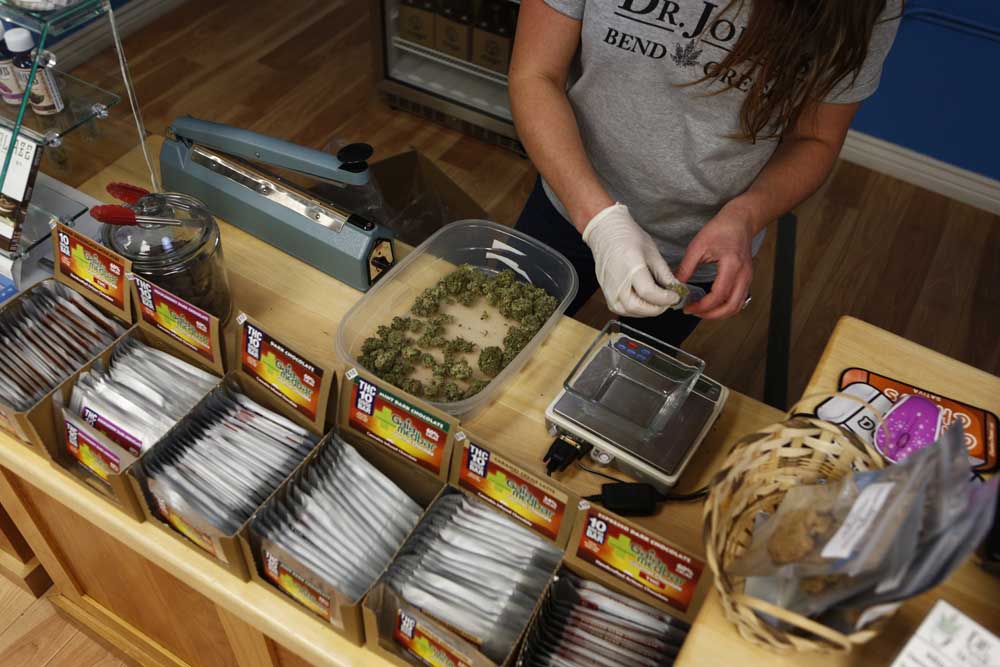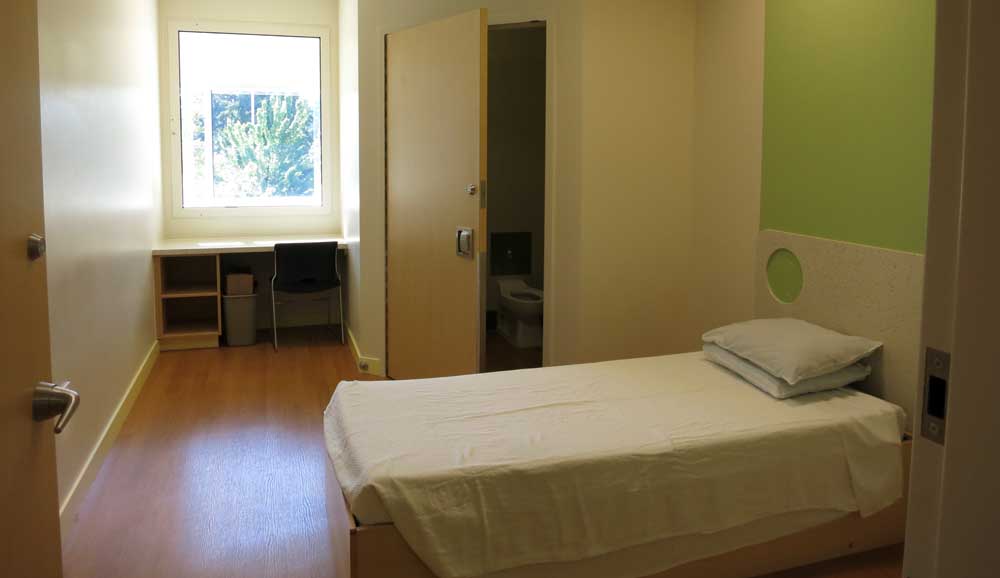Marijuana tax becoming small but significant part of Bend’s budget
Published 12:00 am Sunday, November 18, 2018

- Marijuana is weighed and packaged at Dr. Jolly's Dispensary in Bend. (Bulletin file photo)
About two years after Bend voters imposed a 3 percent local sales tax on marijuana dispensaries in city limits, proceeds from that tax and Bend’s portion of a statewide recreational marijuana tax exceed $1.5 million and have become a small but significant part of the city’s budget.
Revenue from city and state taxes on recreational marijuana makes up about 3 percent of Bend’s $49-million-per-year general fund budget, said Cam Sparks, the city’s budget and financial planning manager.
Trending
Bend collected nearly $1 million from its 3 percent local marijuana tax during the fiscal year that ran from July 1, 2017 to June 30, 2018. That’s double what the city expected to collect when it began its budgeting process before it collected any tax.
“We essentially received one month’s worth of sales data for Deschutes County, and we took that and extrapolated,” Sparks said.
Bend’s budget for the two-year cycle that ends in July is about $700 million. There are restrictions on how most of that money can be used. Revenue from the state gas tax, for instance, can only be used on streets, and sewer fees can only be used for sewer projects or maintenance.
Only a small portion of the city’s money — about $49 million for one year — is in its general fund and is unrestricted. Those dollars come from property taxes, room taxes, franchise fees and marijuana taxes, and the Bend City Council determines how that money is spent.
In addition to the higher-than-expected local marijuana tax, Bend collected an unexpected $400,000 in state shared marijuana tax. The city didn’t include the state shared tax in its budget because when the city made its budget, it wasn’t clear how much of the state tax Bend would receive.
Oregon’s state marijuana tax is set at 17 percent. After removing the money required to administer the tax program, proceeds are distributed to pay for education, mental health and drug treatment, law enforcement and distributions to cities and counties.
Trending
Cities receive 10 percent of the total tax, and that money is distributed based on population and the number of licensees. Counties receive 10 percent, distributed based on the canopy size of the crop and the number of licensees.
Deschutes County has 39 recreational marijuana retailers, according to the Oregon Liquor Control Commission. Those retailers are in Bend, La Pine or unincorporated Deschutes County because Sisters and Redmond ban retailers within city limits.
The county has 97 marijuana growing operations. It ranks seventh among Oregon’s 36 counties in terms of pot retailers and growers.
Now that it has a clearer idea of what the two taxes will look like, Bend’s projecting 5 percent increases during the coming years, Sparks said.
“It’s likely that both of these revenues could come in higher, but just to be conservative we’re budgeting 5 percent,” she told the Bend City Council earlier this month.
Lizette Coppinger, an owner of Bend retail cannabis outlet Cannabend, said marijuana sales have consistently grown. Sales are higher in seasons with more tourists, she said, but don’t slow down too much during the off-season.
“The industry’s definitely been growing,” she said. “There is a lot of competition, but you can see the numbers increasing every year.”
This year, the unexpected windfall is likely to be used to hire a new city street worker and engineer, fund an audit of Bend’s room tax and provide temporary staff for the city’s municipal court. Additional increases to the general fund, because increases in assessed property tax values were higher than expected, could be used to hire an additional police lieutenant, make a temporary police records specialist job permanent and buy a car for the police lieutenant to use.
— Reporter: 541-633-2160; jshumway@bendbulletin.com








